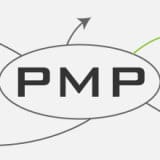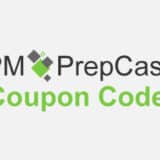[Free PMP Resources] 47 PMP Easily Confused Terms w/w In-depth Explanation

UPDATED for the new PMP Exam in 2023. Happy learning!
To many Aspirants, the PMP Exam is quite difficult. The fact that there are lots of “jargons” (terms with a special meaning in the context of the PMBOK® Guide/project management) only makes it harder. Even if you are a seasoned project manager, the terms found in the PMBOK® Guide may be Greek to you if you have never run projects based on the PMBOK® Guide framework.
During my study, I have identified a list of “similar but different” terms that I often get confused. I deliberately tried to explain the terms in my own language as well as adding some common, easy-to-understand examples as illustrations to further clarify the concepts. And I found this study notes very useful for me to understand and distinguish between the easily confused PMP terms. Below is the list I have compiled and the links to the study notes I have created previously. I was asked by one of my readers to create this list as the individual articles are quite difficult to find on the website through browsing.
I was very grateful to all the PMPs and project management specialist who have helped me to clear my PMP Exam. So I share this exam prep resources to fellow Aspirants for free as my personal contribution to the project management field.
Disclaimer: While every effort has been made to validate the accuracy of the contents of these articles, the information contained herein is provided for reference and may be subject to errors, omissions, changes and deletions. Please let me know if I have mistaken something so that I will make amendments in no time. Thanks for your input!
Article Highlights
47 Pairs of Easily Confused Terms
By understanding the differences and similarities between these pairs of terms, Aspirants will have a better grasp of the knowledge of the PMBOK® Guide and project management:
- Run Chart vs Control Chart
- ROM vs Definitive Estimates
- Analogous Estimating vs Parametric Estimating
- Project Risk Management: Avoid vs Mitigate
- Project Risk Management: Enhance vs Exploit
- Contingency Plan vs Fallback Plan
- Nominal Group Technique vs Brainstorming
- EEF vs OPA
- Project vs Operation
- Push vs Pull Communication
- Qualitative vs Quantitative Analysis
- Develop vs Manage Project Team
- Change Control vs Configuration Control
- Project Expeditor vs Project Coordinator
- Project Requirements vs Project Scope
- Project Statement of Work vs Project Charter
- Project Statement of Work vs Business Case
- Create WBS vs Decomposition
- RACI: Responsible vs Accountable
- RACI vs RAM
- Project Calendar vs Resource Calendar
- Resource Leveling vs Resource Smoothing
- Functional vs Projectized vs Matrix Organizations
- Project Life Cycle vs Product Life Cycle
- Discrete Effort vs Apportioned Effort vs Level of Effort
- Project Team vs Project Management Team
- Contract Types
- Project Quality vs Product Quality
- Free Float vs Total Float
- Fallback vs Workaround
- Cost Baseline vs Budget
- Control Limit vs Specification Limit
- Crashing vs Fast Tracking
- Common Cause vs Special Cause
- Residual Risk vs Secondary Risk
- Project Scope vs Product Scope
- Cost of Conformance vs Cost of Non-conformance
- Work Package vs Activity
- Critical Path Method vs Critical Chain Method
- Contingency Reserve vs Management Reserve
- Quality Control vs Quality Assurance
- Assumptions vs Constraints vs Requirements
- Corrective vs Preventive Actions
- Statement of Work (SOW) vs Project Scope Statement
- Quality vs Grade
- Accuracy vs Precision
- Accepted Deliverable vs Verified Deliverable
How to Make Best Use of the List
For every pair of easily confused terms above, there are some background information on where (the project management domains) the terms are located with brief definitions of each of them. Then a project example will be used to illustrate the concept more vividly (most of the time the project to be illustrated is the “preparation for the PMP Exam” — a project that is very familiar to Aspirants :P). If applicable, differentiation and applicability of the terms in different scenarios will be further expounded in the subsequent sections.
During my exam preparation, after looking at the pair, I would think for a while the definitions of the terms through the sample project. I did not try to remember the definition word by word or learn them by heart as the PMP Exam is not a test of your memorization capability — you will just need to understand the differences between them. This method helps me a lot by reducing the time and stress on these easily confused terms.
Even if you do not confuse between the project management terms, this list will also serve as a last minute study notes to test your understanding of the PMBOK® Guide / project management concepts. I sincerely hope that this will be useful to you!
Wish you PMP success!
Most Popular PMP Certification Exam Articles
- My Exam Prep Tips and Free Resources (I got 4P and 1 MP)
- How to Get 35 Contact Hours Fast and Easy?
- Detailed Comparision of online PMP Courses
- Over 1000+ FREE Quality Mock Exam / Practice Questions
- A FREE Guide to Formulas and Calculation (with explanation and sample questions)
- 47 Commonly Confused Terms with detailed explanation



 Hi, my name is Edward Chung, PMP, PMI-ACP®, ITIL® Foundation. Like most of us, I am a working professional pursuing career advancements through Certifications. As I am having a full-time job and a family with 3 kids, I need to pursue professional certifications in the most effective way (i.e. with the least amount of time). I share my exam tips here in the hope of helping fellow Certification aspirants!
Hi, my name is Edward Chung, PMP, PMI-ACP®, ITIL® Foundation. Like most of us, I am a working professional pursuing career advancements through Certifications. As I am having a full-time job and a family with 3 kids, I need to pursue professional certifications in the most effective way (i.e. with the least amount of time). I share my exam tips here in the hope of helping fellow Certification aspirants!






I have a question I don’t see here. These have been the best explanations I have come across so I will ask here.
Informal/formal and official/unofficial Communications. As best I can tell anything sent via email becomes unofficial because of the communication method being informal? Is this correct? Is there a better way to phrase it?
Hey Edward, Thank. you so much for putting this website together! I passed on my first try (3 above target and 2 target) and part of that was definitely thanks to the resources on your website, like these 47 easily confused terms, the formulas cheat sheet and the summary for each knowledge area. Thanks again!
Congratulations on passing the new PMP Exam in 2021. I am sure your exam success experience will mean a lot to fellow PMP aspriants!
Hi Guys I passed the PMP this morning at 12:30 am with 5 Above Targets. This was after 2 reschedules due to exam not launching, most stressful time ever. Thanks to this blog and all the tips.
Hi Edward,
Thank you for this valuable information, I tried my exam for the first time last week , the 10th December 2020 and failed after two months of intense studying, taking an online prep course and doing over 2000 questions from the training provider. I also had technical difficulty doing the Proctor exams as my antivirus software kept kicking me out of the exam , eventual I completed it but got just below target . I have started with your blog this weekend, thanks to a fellow student and its it great. I am writing on the 18th of December and woudl appreciate any word of final advise.
Have confidence in yourself and you can do it!
Thanks Edward , I passed with all Above Target.
Hi Edward, Thanks much for this great knowledge repository. Question- What is the exact difference between FPIF and FPAF or CPIF or CPAF?
Incentive and Award both are tied to a performance criteria.
Hi Edward, Thank you for sharing all the notes. They are really helpful. Could you please add difference between Risk register and Risk report?
Thanks for your suggestion. Will add this once I find the time.
Hello Edward,
Passed my CAPM exam last week (“above target” in all 13 areas). I’ve been through a number of different sites to help me learn the material, and I have to say your information, and this 47 terms distinction is just *excellent*. It really helped me understand the distinction between these terms in a way that (and this is important) is relevant to the CAPM exam not just in general. Many thanks!
Wow, excellent results! Congratulations Accolade!
Hi Edward,
I cleared my PMP exam today (25th July 2020).
In the last month of preparation, I came across your site.
The concepts explained by you helped develop a deeper understanding, and bridge the gap in practically understanding the concepts explained in PMBOK. This understanding helped me understand and respond better to situational questions.
Hats off to you, having achieved your own certifications, despite having a family especially 3 kids. You are certainly an inspiration to many of us having a family and an epitome of hardwork!
Further your idea and concept of sharing your understanding methodology of PMP and its concepts has been a guide, to help many of us understand PMP methodology better.
Thanks and God Bless!
Congratulations Kevin, you did it!
Hi edward,
I have completed my certification in jan 2020,
Thanks to your notes..they helped me a lot
I advise others to follow then as part of their preparation
Thanks a lot
Congratulations! I am so glad that you find my sharing useful!
Hi Edward, thanks for all the info.
Can you please explain what the schedule model is? Is this the same as the Project Schedule?
Thanks
I will work on this later. Thanks!
Hi Edward! Thanks for such informative posts. My husband found this article just last night, took his exam today and PASSED!! He studied these 47 items up until exam time and he said they REALLY helped. He wished he had found them a lot earlier in his studies. He also said he could have benefited a lot more from an instructor like you since you provide clear illustrations of each term! Thanks again for taking the time to help others achieve success on the PMP exam!!
Congratulations! So glad that my sharing helps. In fact, I am not an instructor myself. But just someone who has passed the PMP exam before.
Very nice site, congrats Edward!
May I suggest a beginner’s one? Customer vs Sponsor… In some questions I get confused, specially if they are requesting interaction with PM.
Thanks!
Great idea, I will compose this when have time. Thanks!
What is happening to the PMBOK-7 revision how. I did not quite understand. Is PMBOK being replaced with something very slim ?
The PMBOK 7th edition is still under review and rewrite. We still do not know much about this but I am sure the PMBOK Guide won’t be “slim” 😛
Hi Edward
Could you please explain the difference b/w Configuration Control Board and Change Control Board.
Regards,
Anubhav
Sure, will be doing this as soon as possible. Wish you PMP success!
Just took the exam and passed all AT.
You have a great site, with many good resources, but *this* is the best. Definitely the right type of stuff to review over any formulas (I didn’t touch the calculator once, nor did I look at my brain dump at all).
Thank you!
Hi Alfred,
Congratulations! You did it!
Thanks Edward. One more pair of terms that everyone can not differentiate: Project Management and Project Governance. Could you please share your thoughts?
Great suggestion! Will work on this soon!
Hi Edward,
I have passed my PMP Exam today with all five Above Targets, I would like to thank you for the valuable resources you shared.
Thanks
Congratulations! Your perfect score is the perfect gift for your hard efforts!
Hi Edward
Thank you for your support, please explain difference between Schedule Baseline and Project Schedule
Hi Phani,
Project Baseline is the originally agreed project execution plan while the Project Schedule is based on the Project Baseline but ever-updating while the project goes on owing to changes (which are inevitable).
Wish you PMP success!
This is really Helpfull …. exactly what I needed….. Many thanks
So glad that you find this useful! Wish you PMP success!
Hi
pls also add in common confusing term – Business case vs. benefit management plan
Hi all, just a motivation for everybody: I tried my first attempt of passing the PMP exam after just 1,5 week of studying 4 months ago. That was definitely not enough. Even though I just missed the pass mark on the exam, I felt bad that I didn’t master the topic the way I would like to. So I planned a re-exam. Now I planned well, studied good, practised a lot and went in well rested. I believe a good night of sleep before the exam is the most important thing. End result: 5 times Above Target. Practise makes perfect they say. Don’t let your head down if you didn’t make it the first try. You know you can do this, just see this as a project, and you will do fine. Go get them!
Congratulations Frits! You did it!
Yesterday, I have passed my PMP exam. I want to give all credit to this blog.
This blog cleared my so many doubts and helped me choosing atleast 40 correct answers in real exam.
Thank you.
Congratulations! I am so proud you find my sharing useful!
One word
Thanks
Dear Edward, you have created a great resource for the pmp preparation. I might have one more input/question regarding easily confused terms: Design of Experiments vs Design for X … Do you know the difference?
Great David, I will do an article on this!
Thank you for the wonderful resource Edward. It helped me a lot for quick revision. I cleared my exam .
Congratulations!
Thank you, Edward
Hi Edward,
Really wants to thanks you! today I wrote my exam and Pass it, Your free list for PMP Mocks are really great, I follow your guidelines.. attempt almost all mocks and score in the range of 62% to 65%. I cannot change my exam date as my registration will expire..with fear I plan to attempt for exam. These mocks give me great idea and prepare for my real exam . Plus I must thanks for that 47 confused terms they also made easy to understand things better.
I Pass with 2 above target, 2 on Target, 1 Below Target.
Congratulations on your success!
Hi Edward,
This is a great resource so first of all thank you for the work that you are doing for the aspiring PM community! I am preparing to take the exam using the PMBOK 6th edition and wanted to find out if questions on the exam will also cover the content below?
6th edition PMBOK now features four new sections for each of the Knowledge Areas:
Key Concepts
Trends and Emerging Practices
Tailoring Considerations
Considerations for Agile/Adaptive Environments
Yes. As these are new topics added in PMBOK Guide 6th edition, you will likely be presented with questions on these. But don’t worry, you won’t be required to memorize all of these but general concepts. Wish you PMP success!
do you have a pdf document of all 47 pairs of easily confused term
Thanks for your message. Unfortunately, I do not have one at the moment. Wish you PMP success!
CORRECTION: “Monitor vs Manage”
Thanks Emily for trusting me and my sharing. Would try hard to include this one in the near future!
Wish you PMP success!
Hi! I’m really learning alot from this page!
Would it be possible to add a “Manage vs Control” page? I struggle a lot with that concept and would really benefit from seeing your point of view on it.
Thank you!
Hi Edward,
I would like to thank you for all the guidance and amazing content you have put together to help PMP aspirants. Based on your suggestions, I opted for Prepcast and also bought Rita Mulcahy’s exam prep. I stuck to these two for preparing for my PMP exam (along with the Pmbok). Also, some of the useful resources you have put up on this site (like the commonly confused terms, chapterwise notes etc), were very helpful in the last week of preparations before the exam.
I passed the exam on 12th July with 4 AT’s and 1 T.
Thanks again for putting together a great website and all the best for the future.
Regards,
R Menon
Congratulations!
Would you like to share your lessons learned in more details with fellow PMP aspirants? Thanks in advance!
You are truly “Made in China”. Make a duplicate copy of every single post from my blog with no credit to the original source 🙂
Oh, sorry to hear that. I am not copying anything from your blog actually. I may have read some articles during my research of these easily confused terms but I have done my homework of understanding those concepts and illustrating these with examples and/or mock exam questions. I do hope that my sharing will be able to offer some assistance to fellow PMP Aspirants. Thanks!
Hi Edward, not sure if you are getting my comments published on your website. But just wanted to ensure that you are receiving a big thanks from me for this wonderful site. I cleared PMP on 19-Jun-2018 and I owe a lot to your website for that.
Congratulations on getting PMP certified. Thanks for your compliments.
Hi Edward,
You are running a great website. I used your summarised lessons on each Knowledge area, combined with Easily Confused terms and Andy Crowe’s books, and got 5 Above Targets on my First try. Not much difference between the old and new exams to be honest, and there were no questions asked on Agile. I assume that means it wouldn’t be tested, but is just for knowledge sake.
To give some tips,
1) I studied hard for a week, ensuring I covered and understood every concept.
2) I combined your site with Andy Crowe and topped it up with PMBOK.
3) I made summaries of everything learnt, then read through my summaries twice.
4) I also understood the Earned Value Management and Network diagram concepts in-depth so I could easily pop out the formulas without having to cram them.
Thanks again, Edward
Hi Edward – Thank you for putting the easily confused terms together. I studied those during my last week of exam prep. These really helped me boost my knowledge. I passed the exam with 3 above target, 1 target, and 1 below target with overall performance above target. Thanks so much.
Congratulations on getting PMP certified just before the change! A big relief!
I would like to thank you for putting all your effort and making this site. This site has really helped me to clear all my doubt on the topics which i had confusion. I appreciate your help. THANK YOU SO MUCH!!!!
I am so glad you find my website useful! Wish you would also contribute your exam lessons learned to help fellow aspirants!
Hello Edward, Your blog is very informative and helped me completely during my studies, I should credit you too for my successful completion of PMI-ACP. Thank you very much.
Regards,
Sameer Naik
Great for you Sameer. It is my humble wish my website would be useful to fellow PMP Aspirants.
Hi Edward, just wanted to say thanks for your guidance through useful sharing. It really helped me in PMP preparation.
And the good news is I have cleared my PMP exam today in firsty attempt.
Keep up the good work..!!!
Hi Edward, thanks a ton for your guidance through these materials and links. It really helped me in clearing my exam today.
I have cleared my PMP exam today in first attempt.
Hi Edward,
I have given the PMP exam today and cleared with 5 AT’s. Used Rita’s book extensively. However towards the last week before the exam date, your website helped me put all together. You are doing a great job. Thank you for all your efforts.
Congratulations! I am so flattered to be able to offer some help during your PMP Exam journey.
Hi Edward,
I used to visit your website and it seems to me very informative. I will appreciate if you can help me by explaining the flow/sequence of each approved change requests to QC, Direct & Manage P.W. and Control Proc. and the reason behind it.
Best regards
Mahabub
You may refer to the post on Project Quality Management for a detailed discussion on this. Wish you PMP success!
Happy to say “I am PMP certified with all 5 AT”. Thanks Edward for giving this all information, its initial inspiration while starting study. 47 commonly confusing Term’s explanation & EVM questions are at Best.
Congratulations on passing the PMP Exam with perfect scores. Would you like to share your PMP Exam lessons learned to help fellow PMP Aspirants? Thanks in advance.
Yes..Sure
Edward, your website is extremely helpful. Thank you so much for putting it together. I have a few questions and hope you can help out:
1) What’s the difference between communication model and communication method?
2) Stakeholders needs and expectations are to be captured in the stakeholder management plan. As regards communicating with stakeholders, where should that be documented? in other words what are the subtle differences between stakeholder management strategy and communication management plan as it pertains to stakeholders?
Hi Anu,
Thanks for your comments.
1) Communication Methods refer to the board categories how communication is done, i.e. interactive, push or pull; while the PMBOK Guide only mentions the (Shannon-Weaver model) Sender-Receiver Model
2) The Communication Management Plan is dependent on the Stakeholder Register to find out what information each stakeholder requires and decide which method(s) are best for satisfying stakeholder *communication* needs. The Stakeholder Management Strategy is in a broader sense than communication management as we also need to take care other requirements or needs of the stakeholders based on the influence or impact the stakeholders have on the project.
Wish you PMP success!
This website is so good! Helped me in so many ways to pass my PMP today with all 5 AT’s. Thanks so much for this great list of resources.
Congratulations Micky! Your results are perfect. Would you be so kind as to share your exam experience with others who will surely find it very useful. Please email the sharing to me at edward.chung.designer [at] gmail [dot] com.
Thanks!
This is by far the best free PMP study source!! Taking the PMP in 3 days!! This is just what I need to make sure the little things don’t turn into big things!!
Thanks for your compliments Alvaro. I am so glad that you find these articles useful. Wish you PMP success!
Edgar.. I passed, first try! This website was definitely a huge help.
Great to learn that. Congratulations!
Hi Edward,
Happy New Year!
I was going through the first chapter under PMBOK and have a query regarding “Project vs Operations”. For example: A construction firm builds a school building at a particular location & delivers it to the client at a specified date. We will rightly call this activity as a project. Now lets assume that the same firm gets a new contract to build the same structure of school building in a different location- no changes in structural design. Will we still call this as a project ? My query here is it is not unique product. The firm is repeating the activity at a different location, so it should be operation. Kindly help me clear this query.
In addition I did not understand a couple of sentences from PMBOK like “Temporary nature refers to Project engangement”. Secondly “project can create a product that can be component of another item”. or capability to perform a service. Can you pls help me understand these terms in a simple way.
Hoping to hear from you as soon as possible
Hi Mridula,
Happy new year. Please find my answer below:
1) I would still call the second building exercise a “project” as even though the same school is to be built, lots of planning (in terms of design and resources, etc.) are needed. And every building project would incur different problems and thus the process would be unique in nature.
2) Sorry, without further context, I cannot explain what “Temporary nature refers to Project engangement” is. For “project can create a product that can be component of another item”. or capability to perform a service, this means that the deliverable of a project can be used in another project/operation/service (e.g. a project to build a production machine to produce disposable cups).
Wish you PMP success!
Thanks a lot for this wonderful study material! Very helpful for my pmp preparation..passed pmp in first attempt..
Congratulations Lavanya! This should be your greatest X’mas gift. Would you like to share more details of your PMP Exam lessons learned so that our fellow PMP Aspirants would benefit? Thanks in advance!
glad i found this resource, has been invaluable study tool for brushing up on many pm terms
This is a great list of Vs’s, so useful thank you. I found the explanations very relatable and easy to understand. your illustration activity was also well received.
Thank you Edward! This is a great collection.
Thanks! Hope this will be useful to your exam prep.
Edward, thank you very much for creating these pages. I especially found the “easily confused terms” very helpful in my study. I am taking the exam tomorrow and have printed out this page to help me do some last minute preps this afternoon.
Hi Henry,
Wish you good luck. Do let me know your good news!
Hi Edward,
Your guide on “Easily Confused Terms” really helps with my PMP exam preparations. Thank you!
Hi Jasper,
Extremely grateful for letting me know this resource is useful to your PMP exam prep. Wish you success!
Wow, I have read only a third of the list of confusing terms and have learned a lot of key information that is not covered in several of the most recommended books including PMBOK. You communicate these concepts better than any source I have found. Thank you for the information!
Hi Tony,
Glad that you find this useful. Wish you PMP success!
Dear Edward Chung,
after long time I am commenting on some other folks blog..I think you didn’t educated your brain, you educated your Soul…”, when I am reading the articles, this reflects on.
Dear Andy,
Thanks for your compliment. I am indeed an ordinary project manager who got lots of help from fellow PMP takers. That’s why I set up this website to organize PMP information in a systematic way to offer some assistance to fellow aspirants. Wish you PMP success!
Hi Edward,
appreciate your nice work on PMP most confusing terms.
I have few more Terms in which I have confusion could you please help to clarify. Thanks.
1. Avoid Risk & Accept Risk (with Example).
2. Administrative Closure & Project/Phase closure & Procurement closure (sequence and steps).
Many Thanks
Varsha (Singapore)
Many thanks for your suggestions. I will work on them when time allows.
Wish you PMP success!
Hi Edward, Great work. I am confused between “Project Team directory” and “Responsibility Assignment Matrix”. Can you please help.
Hi Sumit,
Thanks for your suggestion. I will look into the comparison of these two terms asap.
Wish you PMP success!
Hey Edward….just passed my PMP exam…exceeded target…your articles were both informative and encouraging and I thank you very much for taking the time to out this information out there.
Best Regards
Peter Turck, PMP!!!!!
Congratulations! You did it! It is time to celebrate my fellow PMP!
Hi Edward,
Great job! This is really a good source to fill the gaps. It’s really helping me a lot in my preparation for PMP exam. Thanks!
I am so glad that you find it useful. Wish you PMP success!
Hi Edward,
Thank you for this page on detailing out the differences on the confusing terms. They have certainly proved very helpful and it was exactly what I was looking for while preparing for the exam.
I am happy to report that I passed the PMP exam on first try!
Thrilled to learn that you have passed the PMP Exam in first try. You should be very proud of yourself! If you find my sharing here useful, please help to spread the words so that others can benefit from the website. Thanks!
Dear Edward
your study material looks very productive for me .Also kindly advised me how can i get mock up questions approximately 2000 to 3000 no for exam preperation
I appeared for my PMP exam on 5th July 2017 but failed though i study well and got 75 % on mock up exam (Rita Mulchy) and i was very much sure i will pass the exam but failed. I was almost planning not to go for second attempt soon but my friends advised me to use your material for study
regards
Perhaps you have encountered very difficult questions last time. Don’t give up. Try again and hope to hear your good news soon!
Wish you PMP success!
This is a fantastic resource. I loved the way you paired and explained the confusing terms. Really a great help.
Thanks for sharing your knowledge with other aspirants.
Keep up the good work!!!
Thanks a lot for your comments. I am so glad that you and other PMP Aspirants find it useful.
Wish you PMP success!
Hello Edward,
Thank you for all the helpful documents. Your explanation is very simple, to the point and easily understandable. Wonderful way to contribute toward PM community.
Keep up the good work.
Regards
Savita (from India)
Hi Savita,
Glad that you find my sharing useful. Wish you PMP success!
Hi Mr. Edward. Thank you so much for sharing PMP experience to us. Your website is actually huge resource for who intent to take PMP examination (include me in this year). I think “47 PMP Easily Confused Terms w/w In-depth Explanation” topic is very useful and I wonder if you have PDF version for this area for everyone can download and print to refer is better. Thank you!
Thanks for your encouragement. I will be making this resource when I have time. I hope my website can really help fellow PMP Aspirants in their exam journey. Please stay tuned.
I’ll continue to follow your website for improving my career. Please help us by the more sharing Mr. Edward 🙂